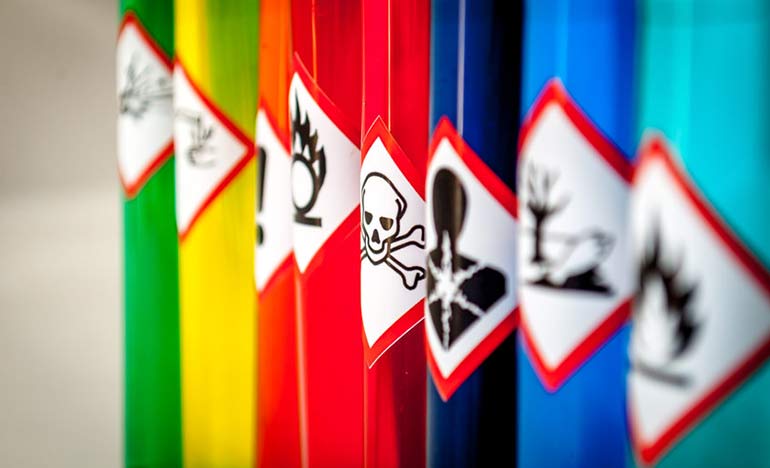PFAS refrigerant ban could impact EU green aims
4th January 2023
EUROPE: The chemical industry claims that proposals to ban certain refrigerants as PFAS substances under the European REACH regulations could compromise EU Green Deal and REPowerEU goals.
The European REACH restriction proposal, which is expected to be published this month, could see bans being suggested for a number of widely used refrigerants including the low GWP HFOs R1234yf – which is now the standard refrigerant for car air conditioning systems – and R1234ze. Both are widely used as components in a number of lower GWP blends, as well being solus gases in a number of applications, including some of the latest chillers.
The ban has been proposed by five EU member states – Germany, the Netherlands, Norway, Sweden and Denmark – as PFAS substances are known to be persistent in the environment, contaminating groundwater, surface water and soil, and causing serious health effects.
What is not known is exactly which refrigerants might be included. The EFCTC says it expects the new proposal is likely to include most F-gases.
In a socio-economic analysis report compiled on behalf of the European FluoroCarbons Technical Committee (EFCTC), the engineering and environmental consultancy Ricardo plc has looked at 10 F-gases that are expected to be covered by the PFAS definition.
These are:
HFC125
HFC134a
HFC143a
HFC227ea
HFC-245fa
HFC-365mzz
HFO-1234yf
HFO-1234ze
HFO-1336mzz
HCFO-1233zd.
Several of these gases are low-GWP refrigerant alternatives to other substances that are being phased down under the F-gas regulations. The EFCTC argues that their inclusion could cause unavailability of refrigerants, thus potentially compromising the EU Green Deal and REPowerEU decarbonisation goals.
The Ricardo study found that the proposed restriction would generate increased costs and reduced efficiency, both in the performance of the product applications and in their energy consumption, leading to an increased burden on consumers, possibly limiting their choices and reducing incentives of technological change from the current equipment containing F-gases. In turn, this could also increase the illicit trade in non-compliant products, it argues.
Environmental groups and the chemical companies are in dispute over the health and environmental impacts of HFCs and H(C)FOs and their breakdown products. In addition to arguments over which refrigerants can be considered PFAS products, it is accepted that some HFCs and H(C)FOs can degrade into trifluoroacetic acid (TFA), which can persist in the environment and has the potential to harm the environment, marine life and humans. Arguments persist as to the extent of any effect that these refrigerants in the environment might have.
The Ricardo study maintains that the F-gases in scope have very low toxicity to both terrestrial plants and aquatic organisms such as algae, invertebrates, and fish, as well as to humans, and display no observable evidence to suggest genetic, reproductive, developmental, or carcinogenic toxicity in humans. Environmental groups disagree.
Related stories:
HFC/HFO ban would have “major consequences” – 20 September 2021
NETHERLANDS: The Dutch association representing 400 refrigeration and air conditioning companies has hit out at its own country’s proposals which could ban HFCs and HFOs under a new REACH regulation. Read more…
REACH proposals could hit HFC and HFO refrigerants – 21 July 2021
EUROPE: While Europe continues with the HFC refrigerant phase down, new proposals to be put before the Commission could see further restrictions or even bans on HFCs and HFOs. Read more…
REACH proposal is unclear – 23 July 2021
EUROPE: The European chemical trade association, CEFIC, has admitted that it is unclear what HFC and HFO refrigerants are included in the new REACH regulation proposals. Read more…
Refrigerants under threat from new PFAS proposals – 15 July 2020
EUROPE: Proposals to restrict the use of PFAS – a range of chemicals dangerous to health – could further impact the use of HFC and HFO refrigerants in Europe. Read more…







